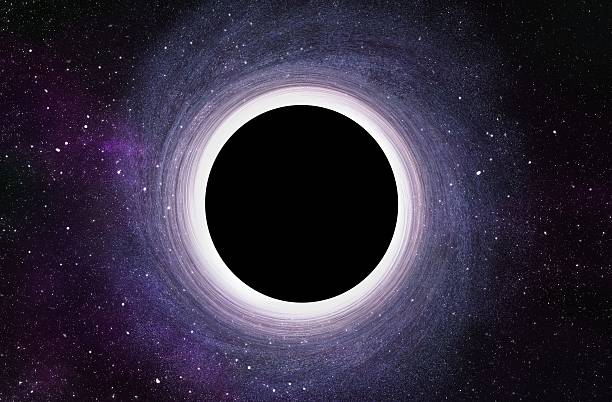
10 Ideas for Exploring Black Holes In 2023? Black holes, mysterious and captivating objects in the cosmos, have fascinated scientists and the general public alike. They are regions of spacetime where gravity is so intense that nothing, not even light, can escape their grasp. In recent years, advancements in technology and our understanding of astrophysics have allowed us to explore these enigmatic entities more effectively.
Observing the Accretion Disk
The accretion disk surrounding a black hole is a prominent feature that provides valuable insights into its properties. By studying the disk, scientists can gain a deeper understanding of how matter behaves in extreme gravitational environments. Utilizing various wavelengths of light, such as X-rays and radio waves, researchers can analyze the emission patterns and study the dynamics of the accretion process.
Gravitational Waves and Black Hole Mergers

The detection of gravitational waves in 2015 opened up a new era in astrophysics, allowing scientists to observe cosmic phenomena that were previously invisible. Black hole mergers, where two black holes collide and merge into a single entity, are one such event that emits gravitational waves. Ongoing research and future missions aim to further explore black hole mergers and understand the intricacies of these cataclysmic events. By analyzing gravitational wave data, scientists can extract information about the masses, spins, and distances of the merging black holes, providing valuable insights into their formation and evolution.
Studying Black Hole Spin
The spin of a black hole is a fundamental characteristic that influences its behavior and interactions with its surroundings. Scientists employ various methods to measure black hole spin, including studying the X-ray emission from accretion disks and analyzing the polarization of emitted light. Understanding black hole spin can shed light on the formation mechanisms of black holes and their role in the evolution of galaxies.
Read More: How to Understand the Nature of Fractals and Chaos Theory In 2023
Investigating Black Hole Entropy
Black hole entropy, a concept derived from the laws of thermodynamics, has been a subject of intense research. Exploring the relationship between black holes and entropy can provide valuable insights into the nature of spacetime and the fundamental laws of the universe. Scientists study the entropy of black holes using a combination of theoretical models, quantum mechanics, and thermodynamics to unravel the mysteries surrounding these extraordinary objects.
Probing Black Holes with X-ray Astronomy
X-ray observations have revolutionized our understanding of black holes. By capturing X-ray emissions from black hole systems, astronomers can study the high-energy processes occurring near the event horizon. Notable X-ray telescopes, such as Chandra and XMM-Newton, have provided unprecedented images and data, revealing the dynamics of matter falling into black holes and the powerful jets they produce.
Searching for Intermediate Mass Black Holes

While stellar-mass and supermassive black holes are well-documented, the existence of intermediate mass black holes remains a topic of active investigation. These black holes, with masses ranging from thousands to millions of times that of our sun, could provide crucial insights into the formation and growth of supermassive black holes. Scientists employ various methods, including gravitational wave detection and observations of star clusters, to search for evidence of these intermediate mass black holes.
Simulating Black Hole Interactions
Computer simulations play a crucial role in understanding the dynamics of black hole interactions. By simulating the behavior of black holes in different scenarios, scientists can explore the complexities of gravitational interactions, the formation of accretion disks, and the emission of jets. These simulations provide valuable predictions that can be compared to observational data, enhancing our understanding of black hole physics.
Exploring Black Hole Singularities
The concept of a singularity, the infinitely dense and compact core of a black hole, remains one of the greatest mysteries in physics. Exploring black hole singularities poses significant challenges due to the extreme conditions involved. Theoretical approaches, such as quantum gravity and string theory, provide potential frameworks to understand the nature of singularities and the physics governing these enigmatic regions of spacetime.
Investigating Black Hole Jets
Black hole jets are powerful streams of particles and radiation emanating from the vicinity of black holes. These jets, fueled by the intense gravitational and magnetic fields near the event horizon, have a profound impact on the surrounding environment. Scientists observe and study black hole jets across various wavelengths, from radio waves to gamma rays, to decipher their formation mechanisms, energy sources, and impact on galaxy evolution.
Collaborative Efforts and Future Missions

Exploring black holes necessitates extensive collaboration among scientists, observatories, and space agencies globally. International partnerships, like the Event Horizon Telescope collaboration, have achieved remarkable milestones by capturing the first-ever image of a black hole’s silhouette. Such collaborative endeavors bring together cutting-edge technology, diverse expertise, and a shared passion for unraveling the mysteries of the universe.
Looking ahead, future missions hold tremendous promise for expanding our knowledge of black holes. The James Webb Space Telescope, set to launch in 2021, will have unprecedented capabilities to observe the formation and evolution of galaxies, including the study of black hole environments. Additionally, the European Space Agency’s Athena mission, expected to launch in the 2030s, will employ advanced X-ray detectors to explore the physics of black holes, their interaction with matter, and the cosmic feedback they exert on their surroundings.
Conclusion
the year 2023 holds tremendous opportunities for exploring black holes and deepening our understanding of these enigmatic cosmic objects. From studying the intricate dynamics of accretion disks and gravitational wave signals emitted during black hole mergers to investigating black hole entropy, spin, and singularities, scientists are actively pushing the boundaries of knowledge. Exciting advancements in X-ray astronomy, the search for intermediate mass black holes, computer simulations, and collaborative efforts will pave the way for groundbreaking discoveries. As humanity continues to probe the depths of the universe, black holes remain captivating enigmas that inspire wonder and drive scientific exploration.
FAQs
Can anything escape from a black hole?
No, according to our current understanding of black holes, nothing can escape their gravitational pull, not even light.
How are black holes formed?
Black holes can form through the gravitational collapse of massive stars or through the mergers of smaller black holes.
Are there any known black holes in our galaxy?
Yes, there is strong evidence for the existence of a supermassive black hole at the center of our Milky Way galaxy, known as Sagittarius A*.
Are black holes dangerous to Earth?
Black holes located far from Earth pose no direct threat. However, their immense gravity can have gravitational effects on surrounding objects.
Can black holes die or disappear?
Black holes do not simply disappear. They can, however, slowly lose mass and energy through a process called Hawking radiation over extremely long periods of time.












7 Comments